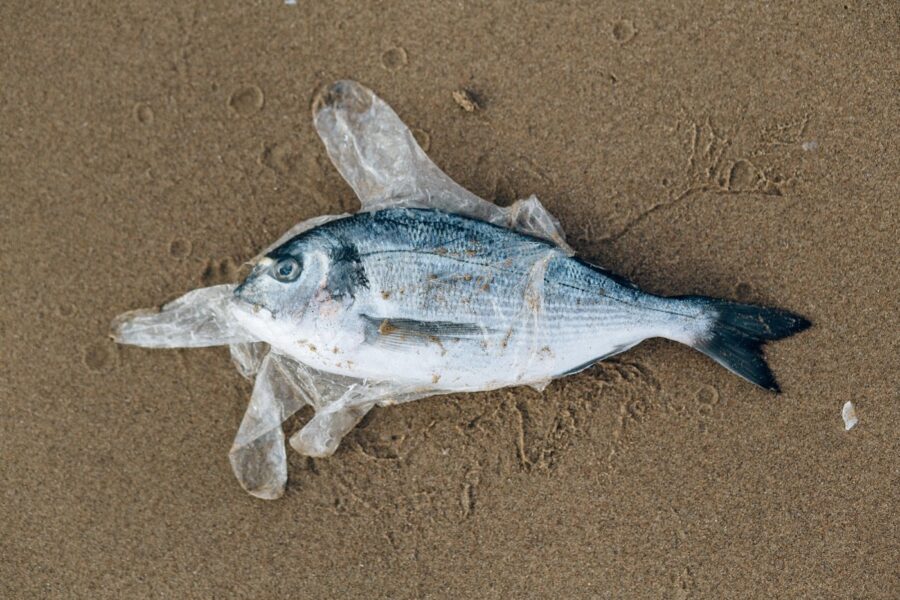
1. Southeast Asia Chokes on Mekong Plastic Pollution
The marine biodiversity hotspot known as the Coral Triangle is home to more than 76% of the world’s known coral species and more than 3,000 species of fish. It sustains the livelihoods of more than 100 million people living along the coasts of Indonesia, Malaysia, Papua New Guinea, the Philippines, the Solomon Islands, and Timor-Leste.
But it is also home to a lot of plastic. New research studied the drift of microplastics from the Mekong River to this area. The Philippines is most exposed to plastic waste that mainly drifts from the Mekong River to the sea during the monsoon season, with 47% of the stranded particles ending up on its coast, followed by Indonesia at 24%, Vietnam at 17%, and Malaysia at 8%. Environmental advocates say the findings of this study underscore the importance of international cooperation in combating plastic pollution.
Thank you for your generous gift that will help us continue the production of this weekly, free publication

2. Shark Meat Is a Global Phenomenon—but Not Everyone Knows They’re Eating It
Brazil’s environmental enforcement agency, IBAMA, stated that it relies on individuals who see illegal activity to report it through its hotline. When fishers with authorization to target specific fish species instead target shark, that’s illegal, it said. “There is no fishing authorization for shark as a targeted species, unintentional shark bycatch, however, may still be used”.
The shark meat business is growing around the world, hastened partly by reductions in other available seafoods due to overfishing and climate change. Fishers who targeted shark fins for high-value soup once sliced off the fins and then threw the injured or dead animals back into the water. But that’s changed: A growing number of finning prohibitions in recent decades have made slicing and dumping illegal in more than 90 percent of the world’s oceans. Fishers now must keep the sharks aboard, which means they have meat to sell.
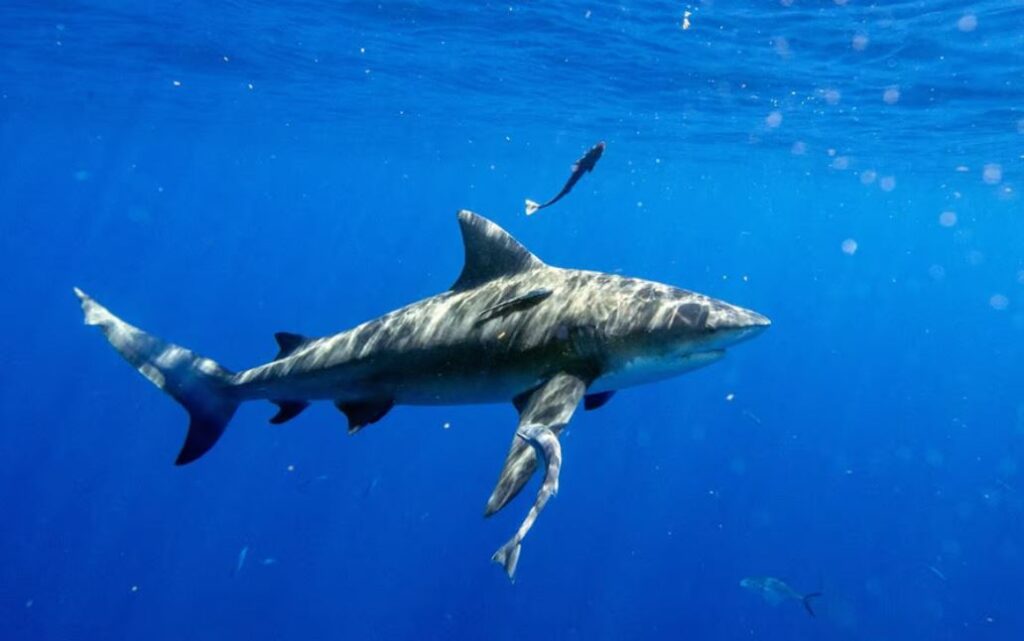
3. The Great American Shark Slaughter
Endangered sharks need protecting—but the federal government works hand in hand with the fishing industry to facilitate their death. According to annual reports, the country typically kills more sharks for sport than for commerce. Controversially, regulators at the National Oceanic and Atmospheric Administration’s Fisheries division (NOAA Fisheries) formally license anglers to target species classified as threatened and endangered by the United Nations—a “red list” that now encompasses more than a third of all sharks and rays.
Despite deep concern among ecologists and overwhelming public opposition, NOAA regulatory mechanisms remain captured by the fishing industry, and, in fact, the agency is considering proposals to strip shark protections even further. Meanwhile, journalists and investigators on the docks report widespread patterns of poaching and other crimes against wildlife at NOAA-sanctioned shark-killing contests.
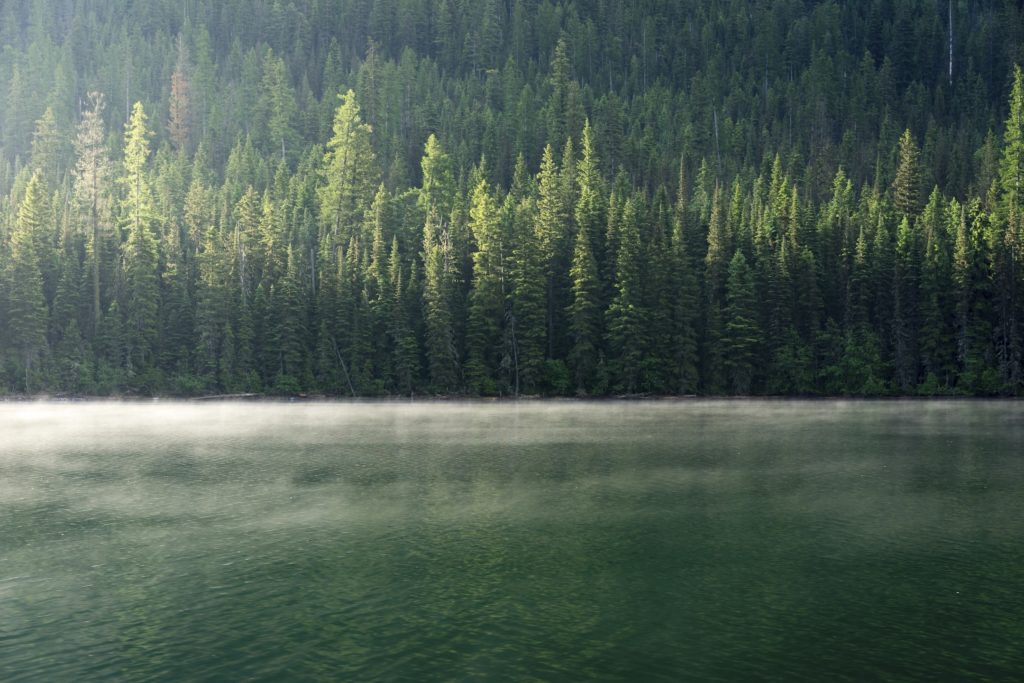
4. House Republicans Propose Ambitious Reforestation Plan in Response to Climate Change
WASHINGTON (AP) — As Speaker Kevin McCarthy visited a natural gas drilling site in Ohio to promote House Republicans’ plan to sharply increase domestic energy production from fossil fuels last month, the signs of rising global temperatures could not be ignored. Smoke from Canadian wildfires hung in the air. When the speaker was asked about climate change and forest fires, he was ready with a response: Plant a trillion trees.
The idea — simple yet massively ambitious — revealed Republican thinking on how to address climate change. The party is no longer denying that global warming exists, yet is searching for a response to sweltering summers, weather disasters, and rising sea levels that doesn’t involve abandoning their enthusiastic support for American-produced energy from burning oil, coal, and gas. “We need to manage our forests better so our environment can be stronger,” McCarthy said.
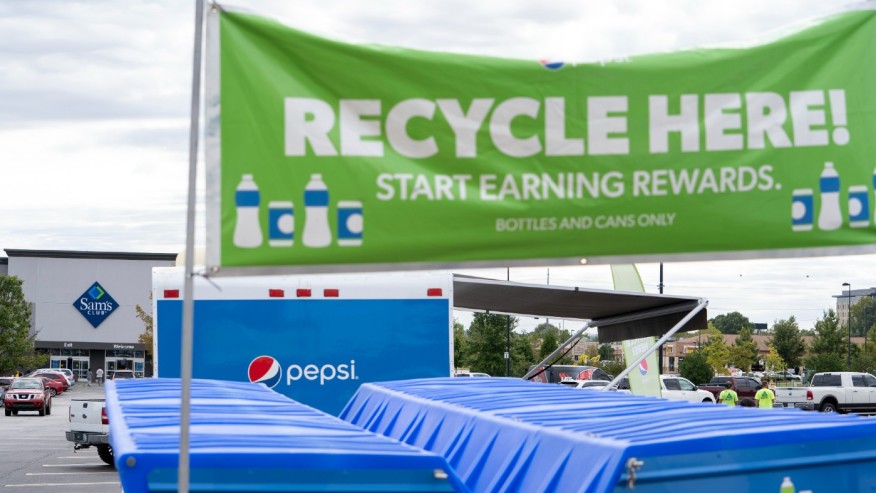
5. False ‘Greenwash’ Solutions Won’t Help — We Need to Eliminate Our Use of Plastics
Short of an effective systemic approach to implementing and enforcing restrictions on corporate greenwashing, individuals must learn to spot the difference between real and false solutions and choose the real solutions.The name for the petrochemical and plastic industries’ favorite business tactic is “greenwashing,” the practice of fabricating or exaggerating the eco-friendly (“green”) qualifications of a brand, product, or service.
False, greenwashed solutions commonly offer quick fixes while causing further problems, instead of making necessary systems change and eliminating waste. One common greenwashed false solution is single-use products made from “bioplastics.” While the word may confer a green image, in reality, bioplastics are anything but. These materials can be made fully or partially from highly processed plant-based ingredients, such as sugar cane, corn, or potato starch. Some bioplastics may contain as little as 25 percent plant-based ingredients and up to 75 percent fossil fuel ingredients.
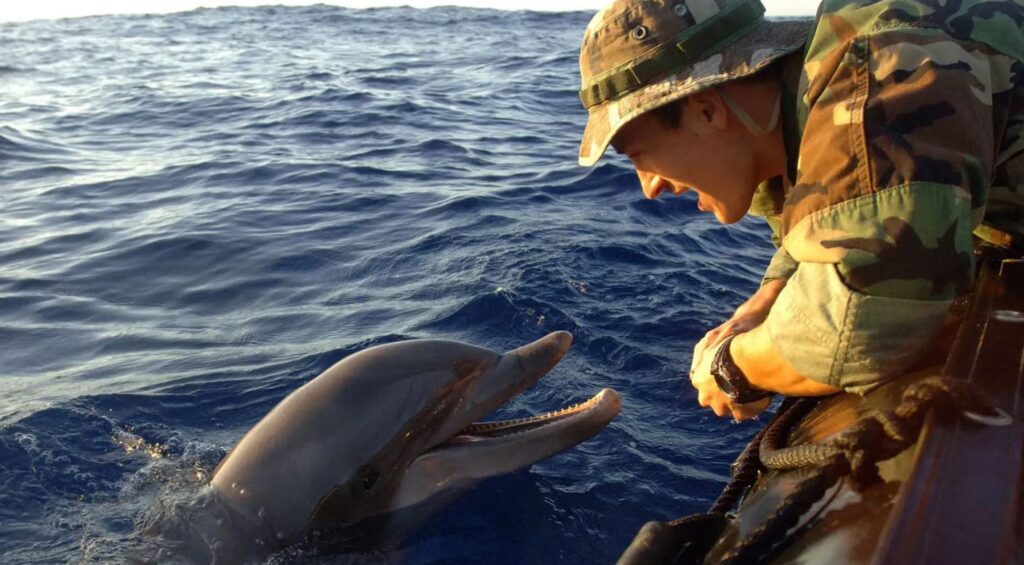
6. The US Navy Is Retraining Its Mine-Hunting Dolphins to Help Save an Elusive, Endangered Species
An international committee of experts set up to save the elusive and critically endangered vaquita porpoise, which lives in the Gulf of California, has partnered with the US Navy’s dolphin program. The task for the dolphins is to locate the last remaining vaquitas using their natural sonar, which involves producing certain sounds and identifying objects by the reflected sound waves.
Once dolphins find a porpoise, they will show its location “by surfacing and returning to the boat from which they were launched.” However, some experts, like Omar Vidal, Mexico director of the World Wildlife Fund (WWF), oppose the plan. He believes that once located, the process of enclosing the porpoise risks killing the last few remaining vaquitas. Up to now, the species has never been held or bred in captivity.
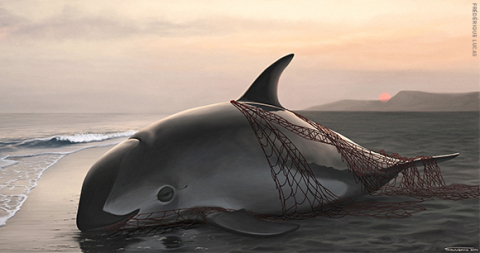
7. Biden Declines to Embargo Products From Mexico Despite Vaquita Violation
President Biden on July 17 announced that he will not embargo products from Mexico despite the country’s failure to halt illegal wildlife trade threatening the critically endangered vaquita porpoise. The decision responds to the U.S. Interior Department’s recent certification under the U.S. Pelly Amendment that Mexico has “diminished the effectiveness” of the Convention on International Trade in Endangered Species of Wild Fauna and Flora by not stopping the illegal fishing and trade of totoaba, an endangered fish poached for its swim bladder.
The vaquita is the world’s most critically endangered porpoise, with as few as 10 to 13 animals remaining. Vaquita become entangled in illegal gillnets set to catch totoaba, shrimp, and other species in Mexico’s Upper Gulf of California. Totoaba swim bladders are trafficked primarily to China, where they are sold at exorbitant prices to make soup with purported medicinal benefits.
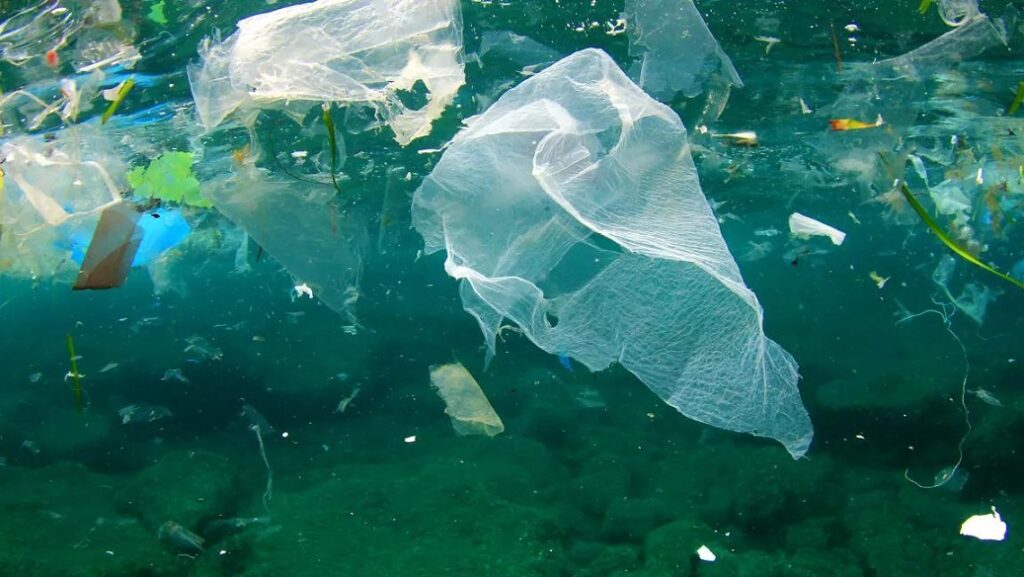
8. New App Helps Young People Turn Tide on Plastic Pollution
A new app is aiming to help young people in Trinidad and Tobago counter the damage done by plastic pollution. Called Tide Turners, the app was developed by the United Nations Environment Programme (UNEP) with the help of young people, like Sobrian. It challenges users to record their plastics consumption and develop an action plan to reduce their use of the material.
Among other things, it encourages people to switch to reusable products and go plastic-free where possible, lifestyle changes that experts say can help stem the flow of plastic into the world’s oceans, which has reached crisis levels. “The Tide Turners app is designed to empower young people to affect change,” which works to counter plastic pollution. “By changing their behaviours around plastic use and getting their friends, families, and communities to do the same, young people can have a significant impact.”
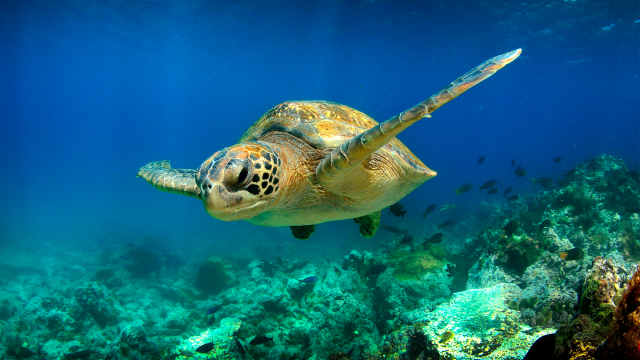
9. Hungry Green Sea Turtles Have Eaten in the Same Seagrass Meadows for About 3,000 Years
Generations of them have returned to the same seagrass meadows along the coasts of northern Africa to feast for roughly 3,000 years, according to a study published July 17 in the journal PNAS. “We currently spend a lot of effort protecting the babies, but not the place where they spend most of their time: the seagrass meadows,” study co-author and the University of Groningen marine evolution and conservation Ph.D. student Willemien de Kock said in a statement.
Recent models have forecasted a high risk of widespread seagrass loss right where green sea turtles have been migrating for generations. Losing these food resources could be detrimental to the green sea turtle, and future conservation efforts can include supporting seagrass planting efforts, reducing greenhouse gas emissions, and building better signs and markers so that boats do not weigh anchor in seagrass meadows.
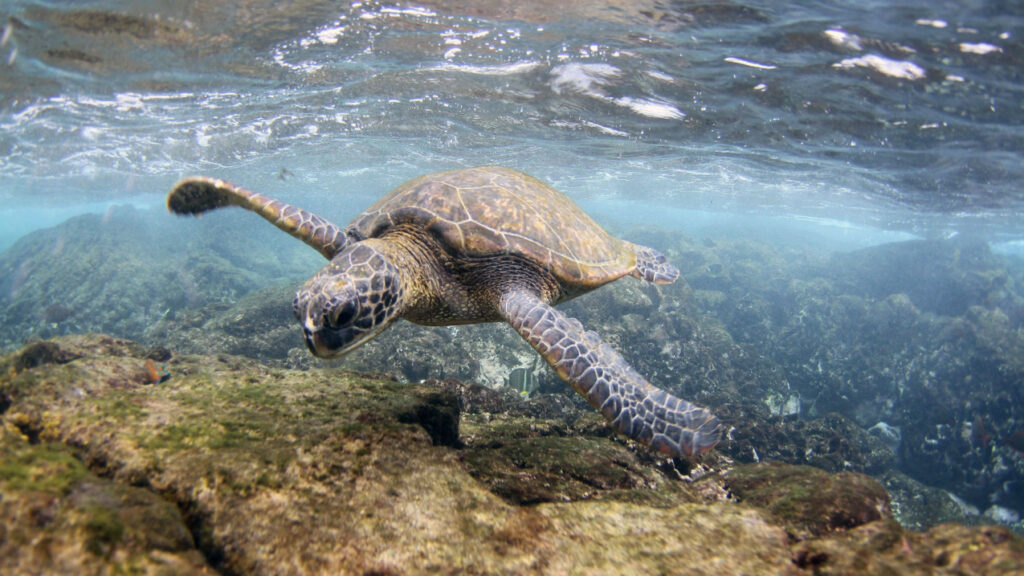
10. U.S. Proposes New Critical Habitat for Green Sea Turtles
Today, NOAA Fisheries and the U.S. Fish and Wildlife Service announced a proposal to designate new areas of critical habitat to protect threatened and endangered green sea turtles. The agencies share jurisdiction for sea turtles, with the Fish and Wildlife Service overseeing their protection and recovery on nesting beaches and NOAA Fisheries providing oversight in the marine environment.
The proposed critical habitat areas include the states of California, Florida, Hawaii, North Carolina, and Texas; the territories of American Samoa, Guam, and the U.S. Virgin Islands; and the commonwealths of the Northern Mariana Islands and Puerto Rico. NOAA Fisheries and the Fish and Wildlife Service listed the green sea turtle under the Endangered Species Act (ESA) in 1978. The ESA is being celebrated for its importance in preventing imperiled species’ extinction, promoting the recovery of wildlife, and conserving the habitats upon which they depend.
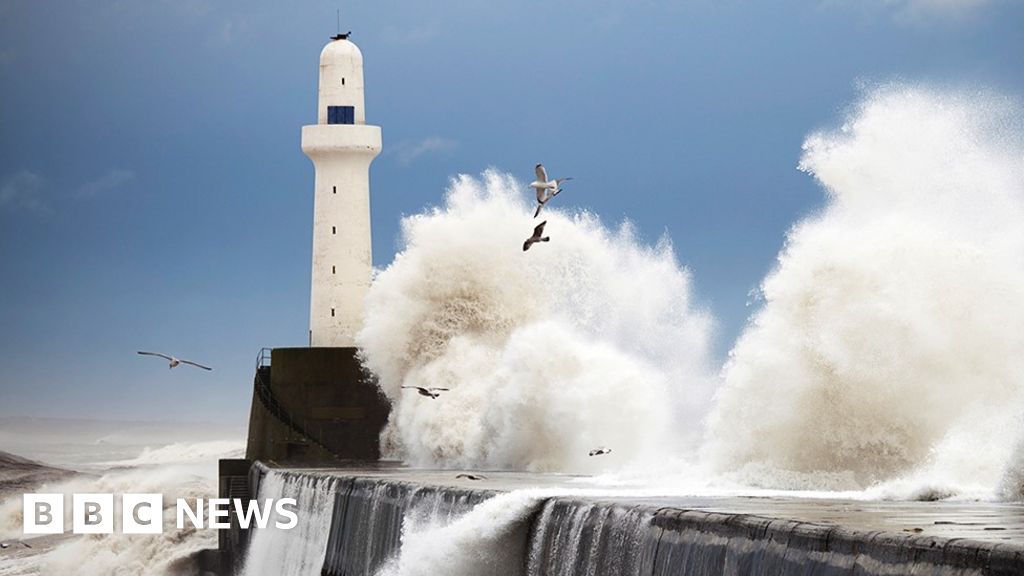
11. Climate Change: Sudden Heat Increase in Seas Around UK and Ireland
Some of the most intense marine heat increases on Earth have developed in seas around the UK and Ireland, the European Space Agency (Esa) says. Water temperatures are as much as 3 to 4C above the average for this time of year in some areas, according to an analysis by Esa and the Met Office. The sea is particularly warm off the UK’s east coast from Durham to Aberdeen, and off north-west Ireland.
The Met Office says the reason is partly human-caused climate change. But other, less-understood natural and man-made factors appear to be driving temperatures up further. Marine heatwaves – prolonged periods of unusually high sea surface temperatures – are also associated with more extreme weather because storm systems pick up more energy and can become more intense and longer-lasting.
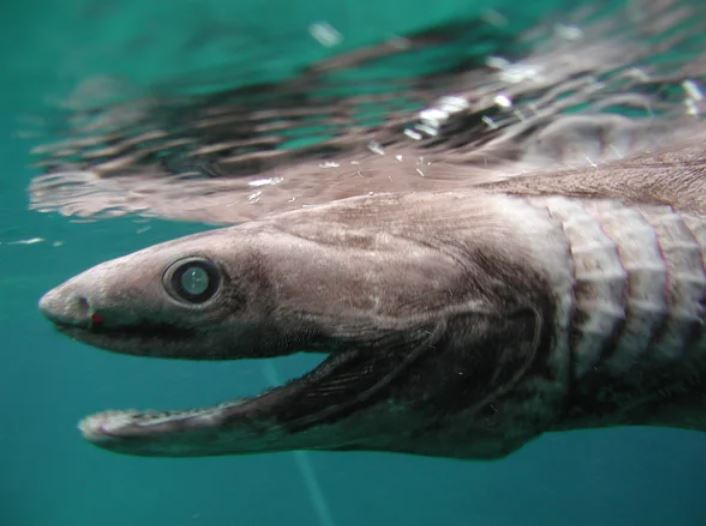
12. Deep-Sea Mining Can Chase off Marine Life for Months
A new study finds that ocean animals decline in mining zones — and they stay gone even up to a year after operations cease. Published Friday in the scientific journal Current Biology, the research presents a case study on a 2020 Japanese mining test on the Takuyo-Daigo Seamount off the coast of Honshu, Japan’s largest island. The test lasted only about two hours, the researchers say, and involved an underwater machine traversing the bottom of the sea.
Yet even this small operation sent marine animals fleeing. Hundreds of marine scientists and policy experts signed an open letter in 2021 calling for a pause on deep-sea mining. Environmentalists, activists, and member states belonging to the International Union for the Conservation of Nature voted in support of a moratorium on deep sea mining in the same year.
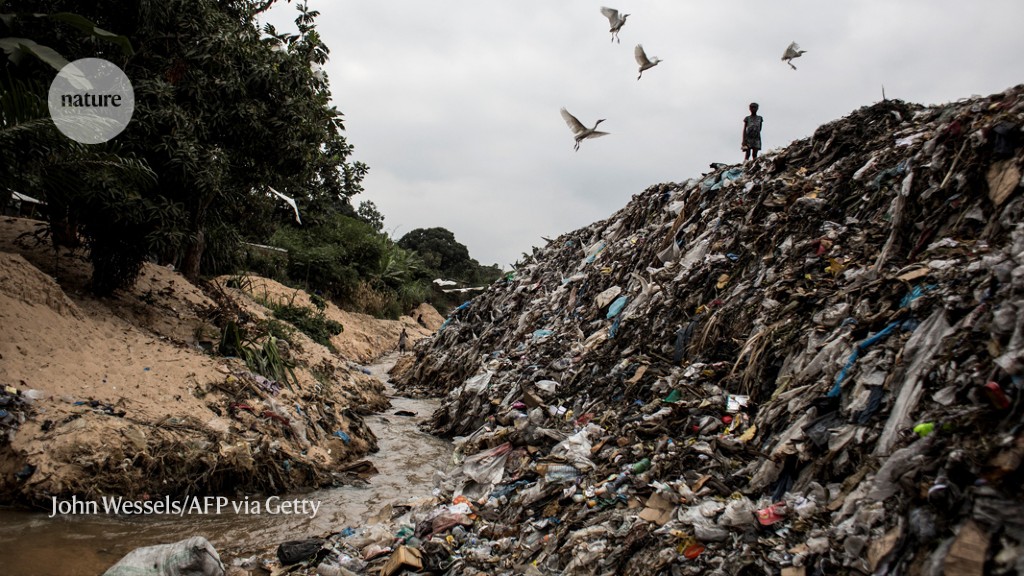
13. Water Pollution ‘Timebomb’ Threatens Global Health
Up to 5.5 billion people worldwide could be exposed to polluted water by 2100, a modeling study has found. Researchers mapped surface water quality under three different visions of future climate and socio-economic development. In every case, sub-Saharan Africa was shown to be among the worst-affected areas. The predictions offer “a temporal and spatial analysis of what has been, until now, anecdotal evidence regarding water quality in sub-Saharan Africa”,
Without adequate investment in water infrastructure or treatment, “we are definitely sitting on a time bomb”. According to United Nations estimates, two billion people worldwide struggle to access safe drinking water. In the past few decades, East Asia and the Pacific region have had the most surface water pollution, owing to booms in industrialization and population that have led to increasing demand for water in areas that do not have the infrastructure to support it.
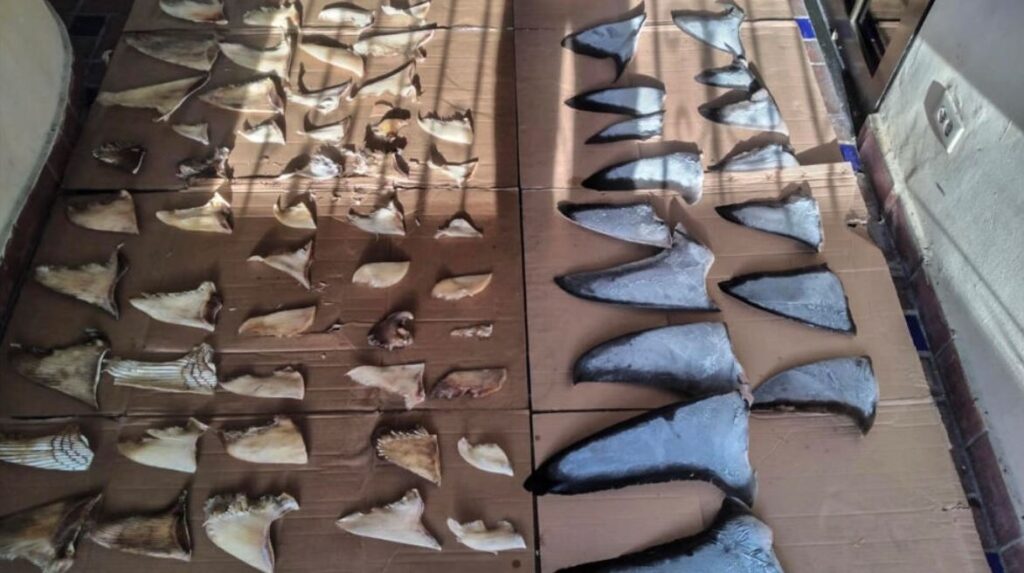
14. Panama Seizes Six Tons of Illegally Traded Shark Fins
Police in Panama seized more than six tons of shark fins bound for Asia on Thursday, arresting five people in connection to the illegal trade, authorities said. The black-market shark fin trade is estimated to be worth $500 million annually, and Panama last year spearheaded international efforts to protect many endangered shark species.
The shark fins were allegedly destined for Asia, police said, where a kilo of fins can cost up to $1,000. In November 2022, the Panama summit on international trade in endangered species — attended by 183 countries and the European Union — adopted a resolution to protect 54 more shark species in a blow to the lucrative fin trade. According to the Pew Environment Group, between 63 million and 273 million sharks are killed every year, mainly for their fins and other parts.
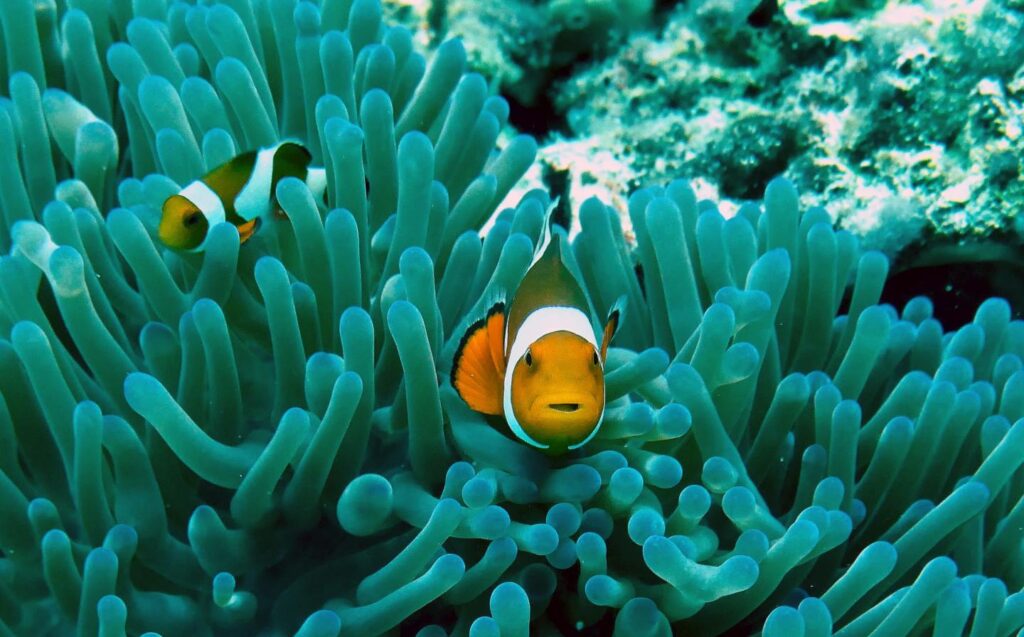
15. A Deep Dive Into the Evolution of Clownfish
Clownfish, renowned for their vibrant colors and unusual symbiotic relationship with sea anemones, have long captivated the imagination of scientists and nature enthusiasts alike. They also serve as a promising model organism for studying adaptive radiations, as their interactions with sea anemones appear to have triggered their rapid diversification into 28 species.
Despite the clownfish’s popularity, however, the genetic basis and evolutionary mechanisms behind their extraordinary radiation have remained largely unexplored until now. A new study published in Genome Biology and Evolution, titled “Insights into the Genomics of Clownfish Adaptive Radiation: the Genomic Substrate of the Diversification”, provides new insights into the genomic architecture and evolutionary mechanisms that have allowed clownfish to diversify and thrive in various ecological niches.
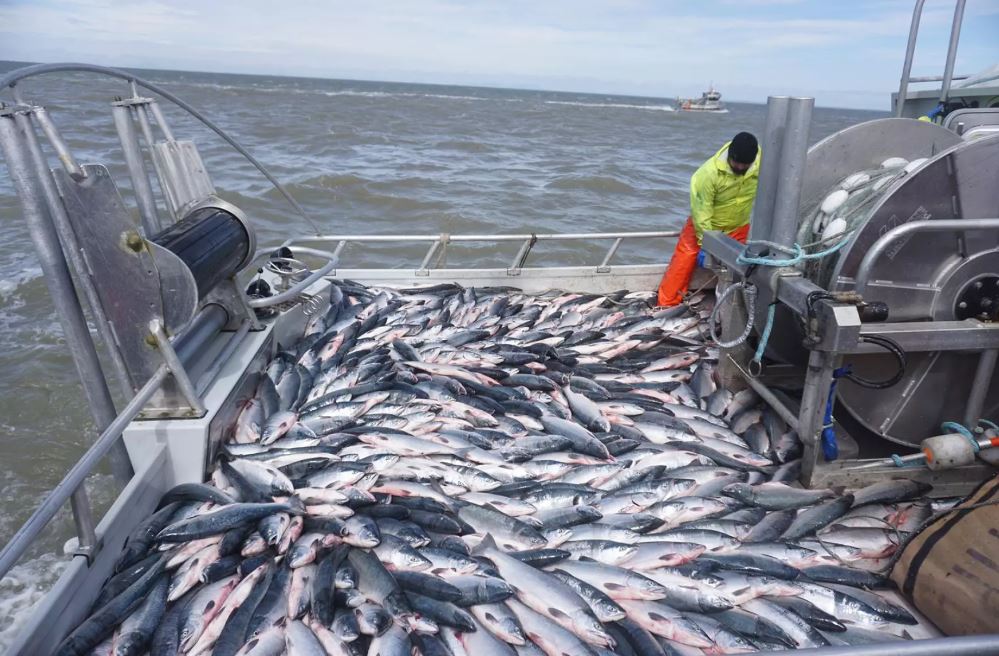
16. What Climate Change and Extreme Temperatures Could Mean for Bristol Bay Salmon
Bristol Bay sockeye populations are booming, but what is the tipping point? This summer is a colder, rainier, and buggier season in Bristol Bay, and across Alaska. Meanwhile, last week the world faced four straight days of the hottest temperatures on record, marking Earth’s extreme warming.The biggest challenge of climate change for Bristol Bay salmon isn’t necessarily warming temperatures right now. It is the variability”.
“You know, climate change isn’t just directional. It’s not just that things are warming, it’s also that there’s greater variability in the systems, these cold, wet, stormy summers are a product of climate change too”. Alaska fisheries managers are tasked with managing the fast-paced, dynamic Bristol Bay runs each year, and that will also mean adapting to climate changes in the future. The only thing we know for sure is that tomorrow, for better or worse, whether a fisher or a fish, Bristol Bay industries and ecosystems must adapt together.
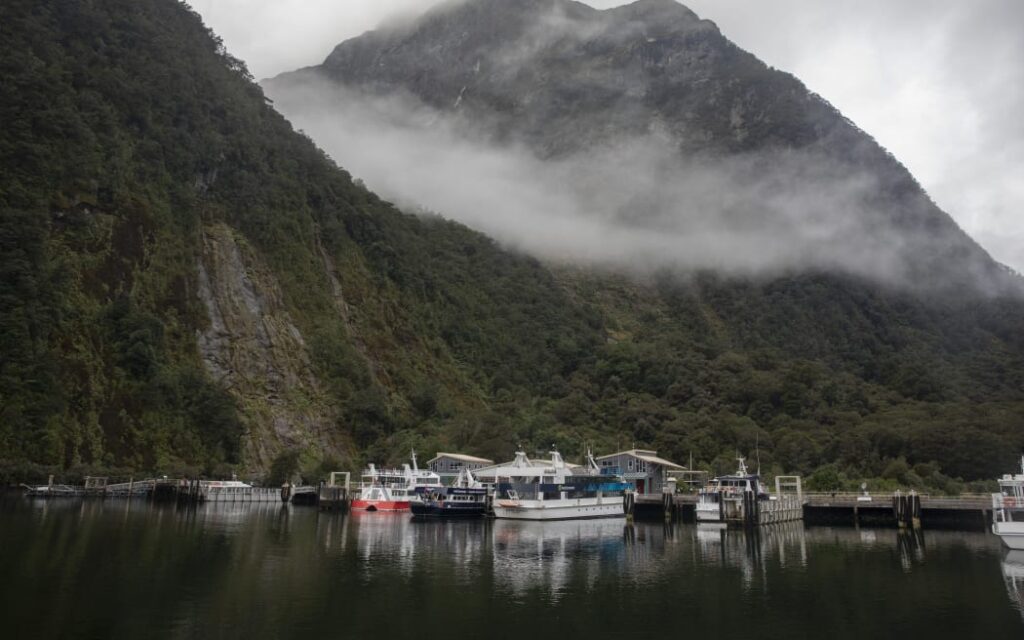
17. New Fiordland Fishing Limits Approved
Recently, Oceans and Fisheries Minister Rachel Brooking approved new rules that will hopefully help rebuild hard-hit fisheries and maintain them into the future. The rules include reducing daily species and bag limits for many finfish and shellfish species within the fiords, closing the oyster and scallop fisheries in Fiordland, and introducing more restrictive fishing zones at each fiord’s entrance – Fishing Lines.
This would help reduce the daily combined finfish limit from 30 to 20 per person outside the Fishing Lines and to 10 inside the Fishing Lines. The Fiordland Marine Guardians recommended the changes to the recreational and commercial fishing rules in the Fiordland Marine Area and it is said that the changes are expected to be fully implemented before the end of the year.
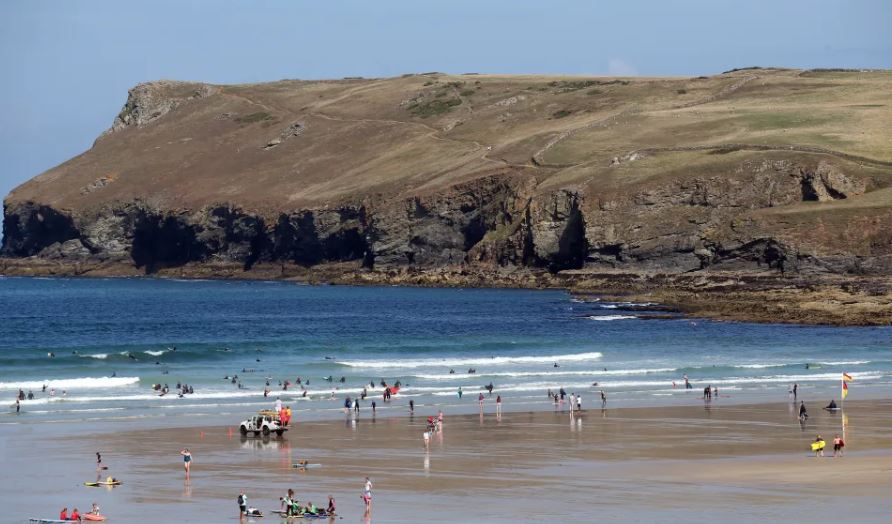
18. 54 Beaches Across the UK Issued With Raw Sewage Alert by Surfers Against Sewage – See Full List
54 beaches across the south of England have been placed under a raw sewage health alert. 33 of these are under a ‘sewage pollution alert’ with the remaining 21 issued a ‘pollution risk forecast’, meaning there is a chance sewage could appear in the area. The alert has been issued by Surfers Against Sewage (SAS).
They are a marine conservation charity set up in 1990 by a group of Cornish surfers from the villages of St Agnes and Porthtowan on the north coast of Cornwall. On their website, they state: “The sheer volume of pollution entering our water means the UK consistently ranks as one of the worst European countries for coastal water quality. Meanwhile, only 14% of our rivers warrant ‘good’ ecological status.”
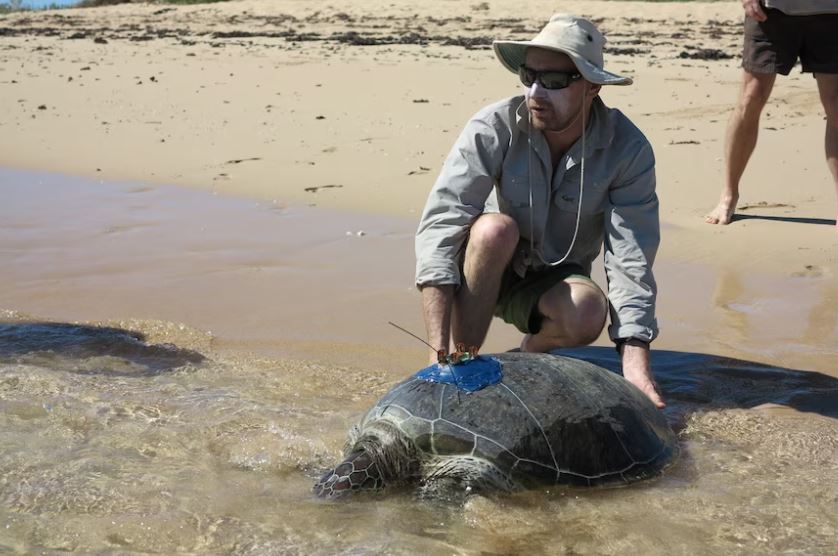
19. AI Guardians of the Sea: Protecting Turtles and Dugongs
In a groundbreaking effort to conserve marine wildlife, scientists in Western Australia are turning to advanced technology. ABC News Australia reported that researchers are employing artificial intelligence (AI) drones to track and study turtles and dugongs in the region. These majestic sea creatures, both endangered species, are challenging to monitor effectively in their vast habitats.
The AI-powered drones equipped with high-resolution cameras provide a non-intrusive and comprehensive way to observe the animals’ behaviors and locations. This innovative approach promises to enhance conservation efforts and generate valuable data to support measures aimed at protecting these vulnerable marine species and their habitats.
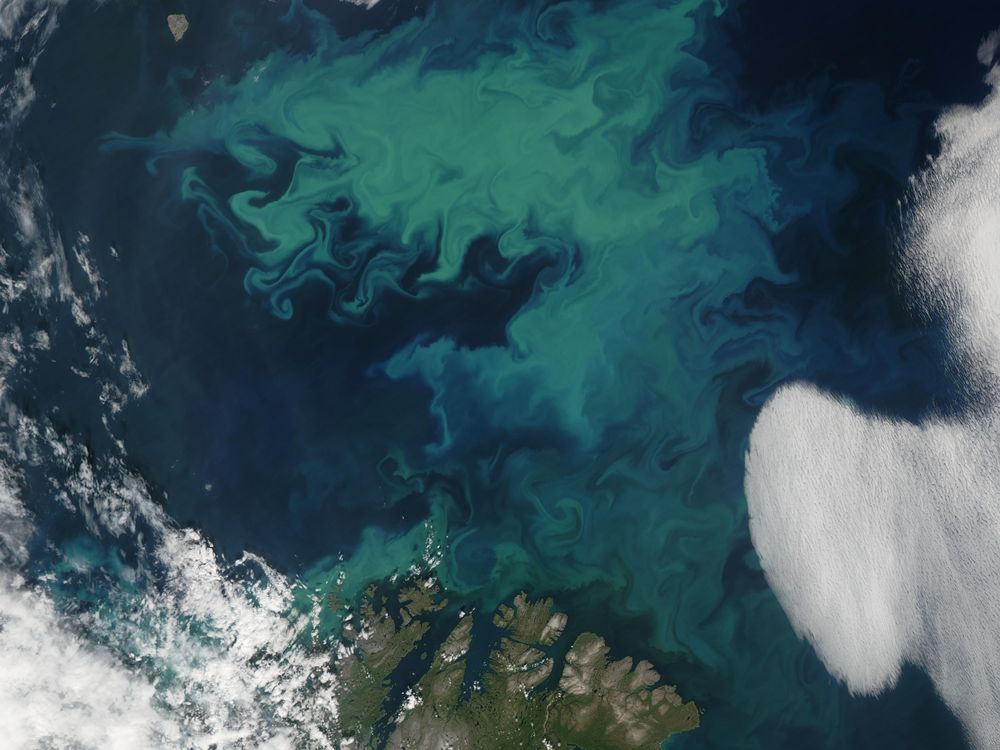
20. Chameleon Oceans: Climate-Driven Color Shifts
A remarkable transformation is taking place in the world’s oceans as a consequence of climate change. According to Smithsonian Magazine, over 50% of the oceans have experienced shifts in color over the past two decades. The changing hues signify alterations in phytoplankton populations driven by various environmental factors. While some regions have grown bluer, others have become greener, indicating the complex nature of these shifts.
Phytoplankton plays a critical role in marine ecosystems and serves as a fundamental food source for many marine creatures. Understanding these color changes provides valuable insights into the impact of climate change on marine life and highlights the need for continued research and conservation efforts to protect our oceans.
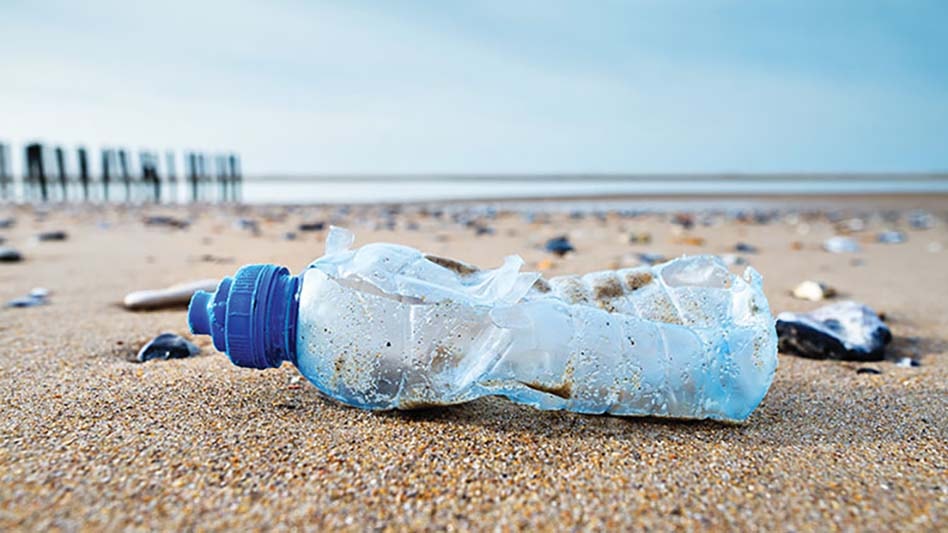
21. Plastics Choke Our Shores: Urgent Cleanup Report
A recent cleanup report has unveiled the alarming extent of beach pollution, with plastics overwhelmingly dominating the waste. Plastics News reported that plastic debris constitutes a significant portion of beach litter, threatening marine life and ecosystems worldwide. The report’s findings call for urgent action to address this environmental crisis.
Plastic waste poses a severe threat to marine animals, with many species ingesting or becoming entangled in the debris. Efforts to combat plastic pollution are crucial to preserving ocean health and safeguarding marine biodiversity. By raising awareness and implementing effective waste management strategies, we can strive for cleaner beaches and a healthier planet.




